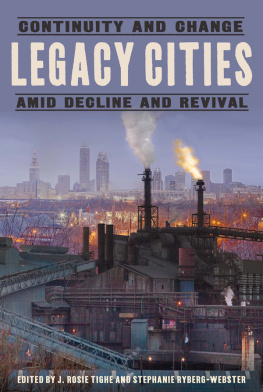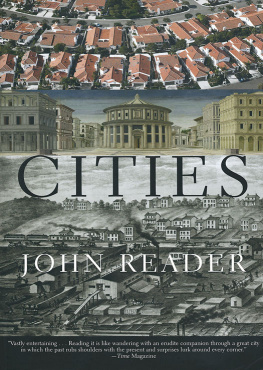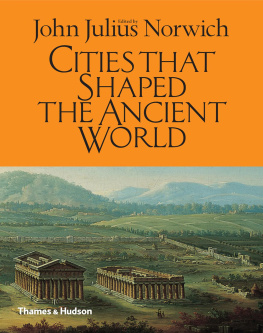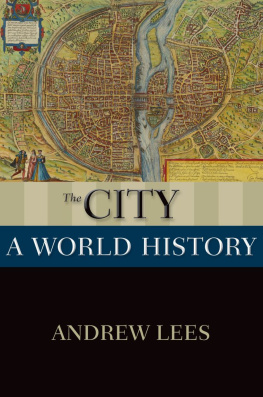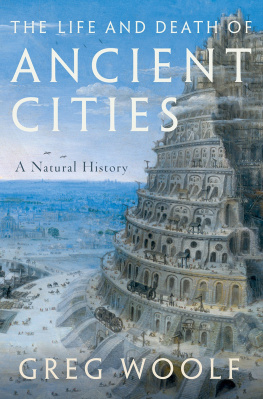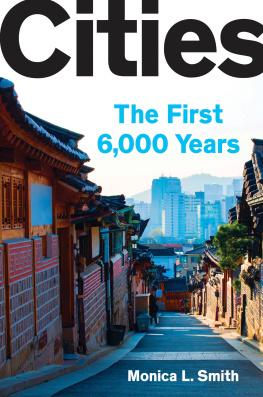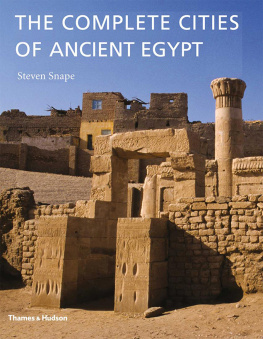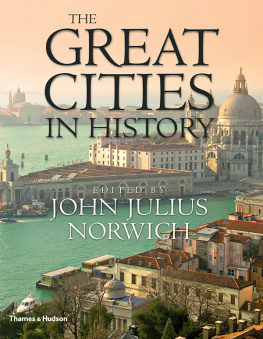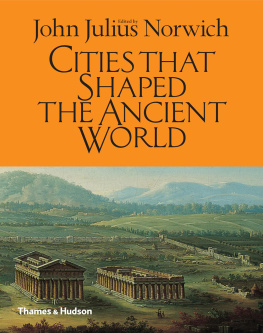

By the same author
Pyramids of Life
Missing Links: The Hunt for Earliest Man
Kilimanjaro
The Rise of Life
Mount Kenya
Man on Earth
Africa: A Biography of a Continent

Copyright 2004 by John Reader
All rights reserved. No part of this book may be reproduced in any form or by any electronic or mechanical means, or the facilitation thereof, including information storage and retrieval systems, without permission in writing from the publisher, except by a reviewer, who may quote brief passages in a review. Any members of educational institutions wishing to photocopy part or all of the work for classroom use, or publishers who would like to obtain permission to include the work in an anthology, should send their inquiries to Grove/Atlantic, Inc., 841 Broadway, New York, NY 10003.
First published in the United Kingdom in 2004
by William Heinemann, a division of Random House, London
Printed in the United States of America
FIRST GROVE PRESS EDITION
Library of Congress Cataloging-in-Publication Data
Reader, John.
Cities / John Reader.
p. cm.
Originally published: London : William Heinemann, 2004.
Includes bibliographical references and index.
ISBN-13: 9780802195739
1. Cities and towns. 2. Cities and townsHistory. I. Title.
HT111.R42 2005
307.76dc22 2005040999
Design by SX Composing DTP, Rayleigh, Essex
Grove Press
an imprint of Grove/Atlantic, Inc.
841 Broadway
New York, NY 10003
Distributed by Publishers Group West
www.groveatlantic.com
06 07 08 09 10 10 9 8 7 6 5 4 3 2 1
Contents
Foreword
The world is not short of books about cities. Thousands of titles adorn the bookshops, libraries and coffee tables of every community. Take your pick from among works featuring the marvels and wonders of this or that city in pages of glossy photographs and exuberant prose; or choose one of the stouter and denser academic volumes that look beyond the marvels to define aspects of history and architecture that make one city more worthy of in-depth attention than another in the author's view. Then there are the travel guides, the musings of footloose essayists, the pronouncements of influential commentators, the fine prose of novelists and the evocations of poets:
Giotto's tower,
The lily of Florence blossoming in stone.
That was Longfellow, just a scrap of many takes on the Renaissance city awaiting the unsatiated enthusiast. London? Try Rasmussen and Ackroyd. American cities? Look for Reps, and especially Riis on New York. Mesopotamia and the early history of cities? It has to be Adams, and Van de Mieroop. Chinese cities? Wheatley, Steinhardt, and don't overlook Marco Polo. Among more all-encompassing works, the erudition of Mumford, Vance and Hall is unmatched. Morris provides an engrossing history of urban form up to the Industrial Revolution, and Cobbett gives a pithy account of what the nineteenth-century industrial city did to Britain. Details of these books and many more appear in the bibliography on pages 326341, which raises a pertinent question: if so many books on cities already exist, why burden the shelves with another? Well, I like to think this one is different. It commends the magnificence of great cities, as other admirers do; and deplores their failings no less than any polemicist might; but beyond that, it searches for the context ecological and functional that is common to the phenomenon of the city everywhere, in every era.
Ecology is the key factor here. Forty years ago, the word was hardly known outside research establishments studying the relationship between organisms and their environment. Now the word is in everyday use though not always used correctly. An entrenched conviction that the science of ecology applies only to the so-called natural world has developed, giving a gloss of authority to negative assumptions concerning the city. In this scheme of things, anything man-made is unnatural. Nothing more so than a city. You can point out that a city is as much part of the world as a termites' mound or a beaver's dam; that the biological imperatives of existence (food, sex, shelter and security) apply as much to people living in cities as to monkeys living in trees, but the ruralurban dichotomy persists: one good, the other bad. We have all met people who profess to hate the city so much that only regular retreats to a second home in the country can preserve their sanity. If the rural environment is so good for you, their words and behaviour imply, then the city must be inherently bad.
Hope for a more reasoned and inclusive understanding of ecology in respect of urban environments has been raised by news that the United States' National Science Foundation is funding a long-term, multi-million dollar ecological study of two cities: Baltimore and Phoenix. What could be more ecological than studying humans and their environment, in cities, the studies ask. What indeed. Especially as cities are destined to become the most significant phenomena on the planet. Even now, the behaviour of cities, as ecological entities interacting with their environment, affects the entire globe, and all humanity.
But this is not an ecological textbook on cities. It is a book that tells a story of cities, from their earliest manifestation to the present day, and attempts to understand them from an ecological point of view how they grow, how they sustain themselves, and the nature of their relationship with immediate and distant surroundings. Along the way, examples from specific cities around the world illuminate particular points: their needs, their problems, their achievements and their failings. People of course feature prominently, as essential components of the city. After all, cities would not exist without us. The question of the moment is: could we exist without cities?
Acknowledgements
The final draft is finished, and the accumulated papers and books, notes, references, diaries, e-mails, letters, addresses and telephone numbers suddenly become forceful reminders of how much this project has relied upon other people especially the authors of the works cited in the bibliography. Without them, the book simply would not exist. That is a humbling thought, and I am deeply grateful to them all. Thank you.
My research was facilitated by generous help and hospitality from many quarters. In some instances a stay of several days was involved; in others it was an hour or two, a conversation, or perhaps just an e-mailed reference to something I might otherwise have missed. All contributions were very much appreciated. My thanks to: Leslie Aiello, Alan Berkowitz, Gerald Blomeyer, Cristina Boelcke, Bill Brown, Bobbie Brown, Simonetta Cavaciocchi, Harvey Croze, George and June Duncan, Rob Foley, Peter Goldsbury, John and Diane Grabowski, Jrg Haspel, Peter and Jessie Hawthorne, Andrew Hill, Ian Hodder, Richard Hosking, Fumio Ikuta, Norioki Ishimaru, Sue and David John, Hugh and Peggy Jones, Kathy Homewood, Gerd Koch, Urs Kohlbrenner, Hiroshi Kurose, Marta Lahr, Hubert and Diana Martin, Nomura Masato, Neil Maybin, Sally McBrearty, Rod McIntosh, Susan Keech McIntosh, Fumihisa Miyoshi, A. E. J. Morris, Klaus Mschen, Mirko Novak, Francis Pickard, Steward T. A. Pickett, Tim Radford, Charles Redman, Johannes Renger, Arsenio Rodriguez, Alan Rowlin, Esho and Shoko Togashi, Kay Woods, Rita Wright, Mayumi Yamane, Toshiro Yuasa, the staff of the University College London libraries, the London Library, the Institute of Ecosystem Studies, Millbrook, and the Istituto Datini, Prato.
Next page

